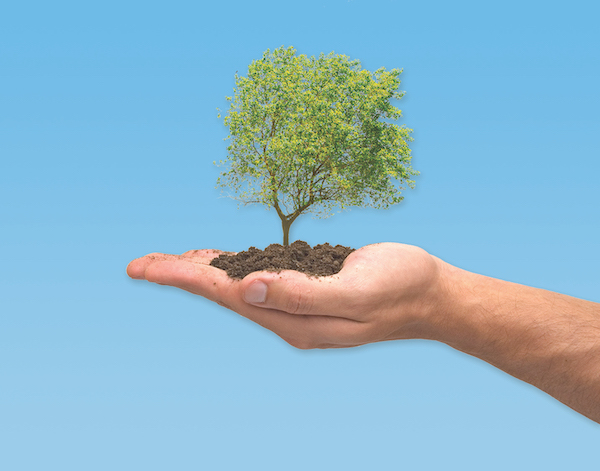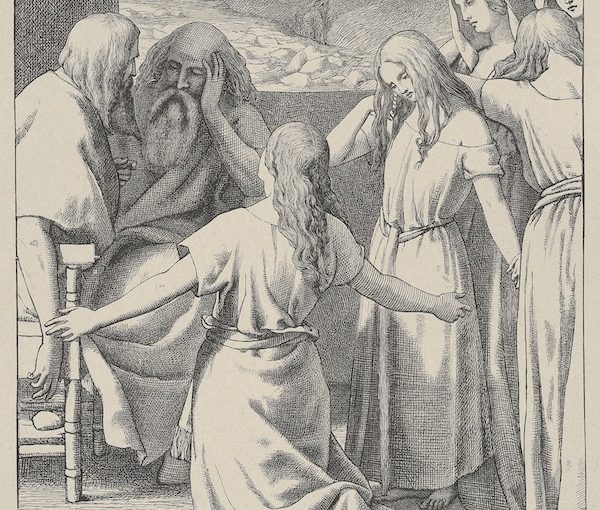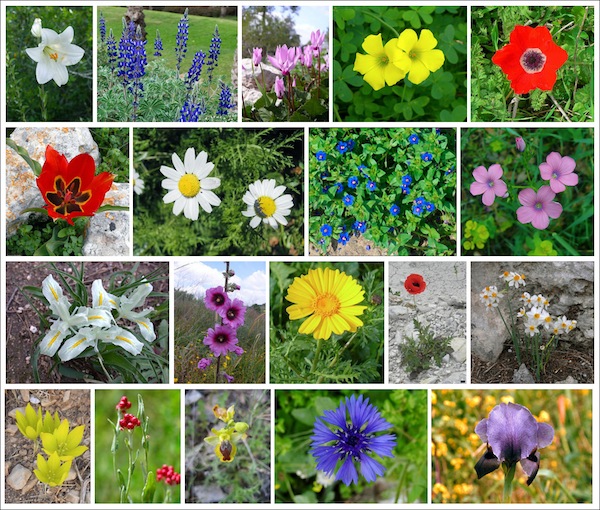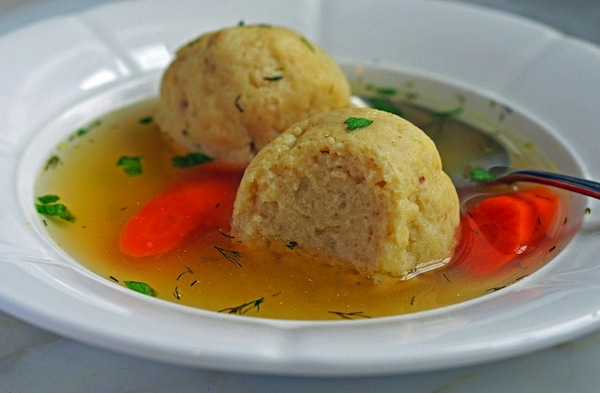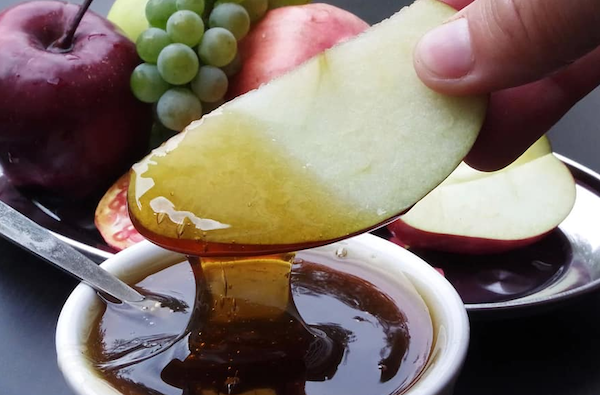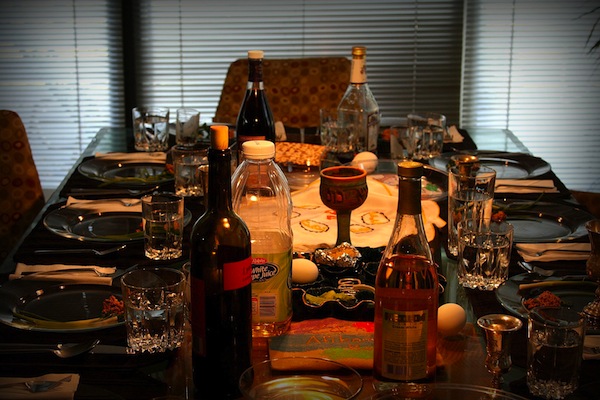Passover traditions like the seder connect family and friends, and remind us who we are. (photo from flickr.com)
“I know I read an article somewhere that the greatest number of suicides happen on holidays,” Naomi said to her mother.
Rebecca ignored her. “Just keep lining the shelves.”
“But it makes sense, truly it does. Why are we taking this perfectly clean kitchen apart and practically rebuilding it? Does it say anywhere in the Bible that you go straight to hell if you don’t drop with exhaustion the week before Pesach?”
“This is the way my mother did it, and her mother did it, and one day you’ll do it for your kids, too.”
“You’re kidding yourself. If you think I’d ever inflict all this work on my daughter, you’re crazy. And why doesn’t Joe have to help?”
“He will. He’ll kosher the stove and the sinks.”
“And that’s another thing. Two minutes with a blowtorch and then he’ll pour a kettle of water. Big deal. And Dad doesn’t even do that.”
“He conducts the seder.”
“Another big deal. We take the place apart, vacuum chairs and wash curtains and change over dishes, not to mention 40 kilos of kneidl and all that stuff that gives you indigestion. What am I saying, indigestion? All those eggs – you’re probably giving us a gift of coronary heart disease. Jesus!”
“Naomi, stop it.”
“I’m sick of it. I want to escape like Faye.”
Rebecca’s lips tightened. “Fagie’s coming to the seder, too.”
But Naomi was not to be sidetracked. “Fagie, what a name! No wonder she rebelled. Naomi and Joseph, they’re bad enough. But Fagie, what were you thinking of?”
“It’s a good Jewish name. I was thinking of my grandmother. If you and your sister could have known her, you’d understand. The least I could do was keep her name alive.”
The spotless refrigerator was being polished within an inch of its life. Naomi sat down and watched her mother.
“I thought Passover celebrated freedom from slavery. But every year, you become a slave and you make me one, too. If you think you’re giving me wonderful memories, forget it. As soon as I can leave home, I will. Faye told me the best thing about marriage was being able to run her house like the 20th century. Now we’re in the 21st, for chrissake.”
“I hate it when you talk like that.”
“Like what?”
“So tough. All those profanities. What happened to femininity?” she asked her daughter sadly.
“Feminism came along, only you’ve never heard of it. Dad and Joe get out of everything ’cos they’re men. You’re the biggest chauvinist ever, because you not only condone this status quo, you actually perpetuate it.”
Rebecca sighed. “You don’t understand. Neither does Fagie.”
“You bet we don’t. Here, I’ve lined the last bloody shelf. I’m going out.”
“Where?”
“Out, as in O-U-T.”
“When will you be back?”
“If I had my way, it’d be around May or June – after Pesach.” She slammed the door. Rebecca heard the car start up. Her eyes filled with tears. She was exhausted. “This is gratitude,” she thought bitterly. “Here’s Naomi, barely 18, with her own car. We were married six years before we had one.”
Fagie started her marriage with all the things that she and Sam still don’t have after 27 years. And look how she is bringing up Brendan. Brendan! What sort of name is that? No wonder Fagie and Joel hadn’t wanted to give him a brit. If she and Sam hadn’t insisted, their grandson wouldn’t even have had that. They’d treated his Hebrew name, Baruch, as some sort of joke. Well, maybe in their circles it sounded strange. But at least among the family…. Everything with Fagie was a war. If she bought the child a kippah, Fagie would get upset. If she wouldn’t eat in her daughter’s treif house, it meant another argument. What did you have children for?
She heard loud music from upstairs. The Grateful Dead. No wonder they were grateful – they can’t hear the cacophony, she surmised.
When the key turned in the lock, she didn’t have the strength even to go and say hello to Sam. He wandered into the kitchen. “It looks beautiful,” he said, patting her shoulder and taking in the sparkling clean room.
“To us, maybe.”
“What’s wrong? Fagie been getting to you?”
“Not just her. Naomi’s just as bad now.”
Sam sat down heavily. “I don’t understand it. We sent them to day school – forked out in a year more than our education cost in a lifetime. And what do they give back? Where’s Joe?”
“Can’t you hear? He’s studying. That’s his usual accompaniment.”
“Even so, he’s a good student. He’ll make us proud one day. He’s talking about medicine or law, maybe architecture….”
“We’re kidding ourselves, Sam. Even if we’re proud of him, he’ll be ashamed of us.”
“No, not Joe. Why do you say that?”
“Because we’re fighting a losing battle. The things that are important to us are hateful to them.”
Sam’s shoulders sagged. “Joe’s turning his back on our traditions, too?”
“Not yet. He’s only 14. But he will – give him a few years.”
Wearily, Rebecca made dinner. The three of them ate in near silence. Joe had a book next to his plate and didn’t seem to notice. He had already left for school next morning when Rebecca, Sam and Naomi sat down for breakfast. Naomi avoided her mother’s eyes. “I’m sorry about yesterday.”
“No, you’re not,” Rebecca answered, “you meant it.”
“I just wanted you to understand….”
“Oh, I understand. Your father and I made a decision last night. You tell her Sam.”
He cleared his throat. “Naomi, since Pesach is so distasteful to you, you can go and stay with your sister. Your mother and I are taking Joe and going away for the week. That kosher guest house in the mountains –”
“You mean no seder?”
“What for? For Fagie’s family, who barely tolerate it. For you, who finds it such a chore? You know what it says in the Zohar? It says a little hurt from kin is worse than a big hurt from a stranger. Who needs it?” He pushed his chair back abruptly and, a minute later, they heard the front door close.
Naomi pushed the food around on her plate. “I think you’re overreacting. We always have a seder.”
“We always used to have a seder. We’re not going to do it any more. I didn’t care about the work, the exhaustion, because I thought it meant something. If it doesn’t, there’s no point.”
“It meant something to you and Dad.”
“So, we’ll sit at someone else’s seder. Naomi, go to university. You’ll be late for class.”
An hour later, the telephone rang. “Mum, it’s Fagie.”
“Oh, it’s Fagie today. What happened to Faye?”
“Don’t be sarcastic Mum – it doesn’t suit you. Listen, are you home? Can I come round?”
“What for?”
“I need to talk to you.”
“I’m not babysitting if that’s what you want.”
“Brendan’s at play group. I just want to talk to you.”
“I don’t think there’s anything to talk about. But come if you want.”
Thirty minutes later, Fagie’s car drew up. Rebecca poured her a coffee and pushed it towards her.
“So?”
“It’s about the seder.”
“Naomi didn’t waste much time. What’s wrong? You don’t want your sister’s company for a week?”
“Please listen. It’s not right what you’re doing.”
“Not right? For whom?”
“For anyone. Dad will hate not conducting the seder.”
“He’ll survive.”
Fagie’s voice trembled. “Maybe we won’t.”
“What does that mean?”
“I don’t know how to say this. It’s just….”
Rebecca remained silent, not attempting to help.
“It did mean something to us – me and Naomi – even Joel.”
“What did it mean?”
“It meant we were a family. It kind of bound us together. We need it. Brendan needs it. That once a year at least – to remind us who we are.”
“Who are you exactly? You can go and celebrate Easter. It’s all the same to you.”
Fagie’s voice trembled. “You’re making it hard for me. Mum, it’s true we don’t keep all the things you and Dad do. Most people don’t anymore.”
“And that makes it right?”
“Yes – no – I don’t know. It’s hard for us, to be different from our friends. But we need something. We need to know it’s there for us.”
“Not good enough. What happens when we go?”
“Maybe we’ll take it on then. When there’s no one else.”
“Why would you want to do that, if it’s not meaningful now?”
“For our children. I can’t explain. We can only give up these – traditions – because we know you still keep them. That they’re there for us to come back to. Sure, we ridicule them, but it’s like a family. We insult one another all the time because it’s easier than saying, ‘I love you and I need you.’ Do you understand me?”
Fagie was crying openly now. Rebecca didn’t trust herself to speak.
Three nights later, the candles were lit in the candelabra in Rebecca’s dining room, the flames casting shadows on the snowy white tablecloth. Sam sat at the head of the table and inspected the seder plate with its three matzot, the parsley, saltwater, horseradish, charoset, shank bone and roasted egg. He planned where to hide the afikoman, so that it would not be too hard for Brendan to find. Joe was filling the wine glasses, with the extra big one for the prophet Elijah, while Naomi handed out Haggadot. His grandson sat between Fagie and Joel, his face flushed with excitement. Sam’s eyes met his wife’s, which were moist with unshed tears, as were his.
“Baruch atah,” he began. “Blessed art Thou, O Lord our God, King of the Universe, who created the fruit of the vine.”
Dvora Waysman is a Jerusalem-based author. She has written 14 books, including The Pomegranate Pendant, which was made into a movie, and her latest novella, Searching for Sarah. She can be contacted at [email protected] or through her blog dvorawaysman.com.

